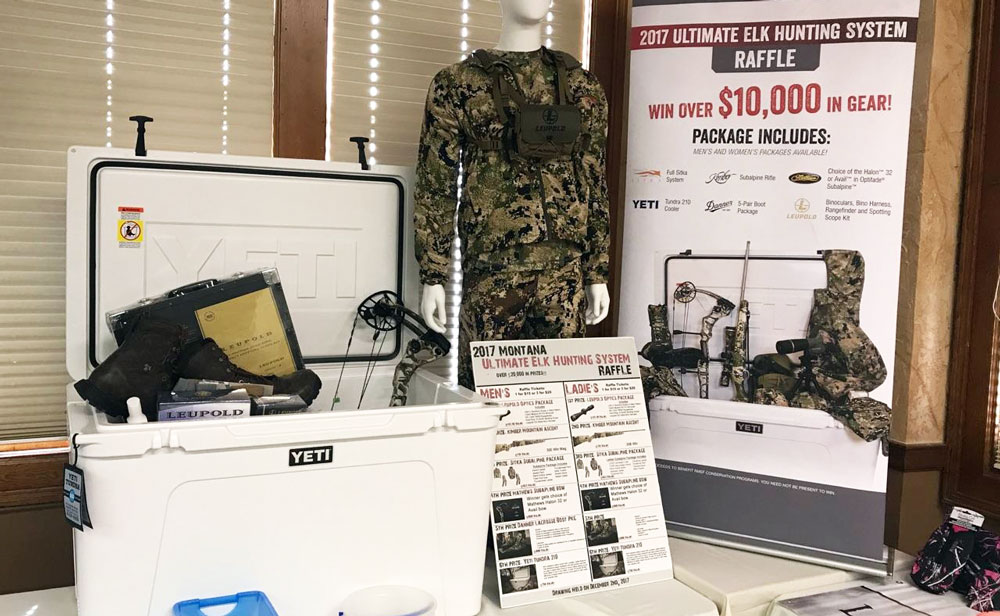There’s no question that banquet raffles provide a large portion of RMEF’s total revenue. They generated over $13.6 million in 2019 even before the close of the year. Because of how important raffles are, we’ve put a renewed emphasis on making sure we, as RMEF chapters and volunteers, are following all raffle laws in our respective states.
RMEF raffles and drawings fall under the category of gambling. In the 50 states, there are many different approaches to gambling. Some states prohibit nearly all gambling (Hawaii), and some states allow nearly all gambling (Nevada, though it is highly regulated).
Limited gambling (usually raffles or bingo games) conducted by nonprofits is called charitable gaming. This is legal in most states. However, the 50 states, as well as countless counties, differ in their approach to regulating these games. For example, some raffle laws do not allow discounted tickets, or online promotion or sales of tickets. Sometimes you have to be a certain age to buy or sell a raffle ticket, and the list goes on.
How important is it to make sure any banquet games are legal in your state and run correctly? Vitally! RMEF uses games of chance (usually raffles and drawings) as a major fundraising tool in almost every state in the country.
What Happens If We Don’t Follow the Laws?
By running illegal games of chance (even by accident), RMEF risks heavy fines and even the loss of our ability to conduct raffles in the state where the offense takes place. If this were to happen in any given state, it would result in a minimum of a six-figure loss and would reduce the RMEF’s income in that state by almost 50 percent. The risks associated with operating an illegal raffle vary by state, but may include a fine, loss of charity status and fundraising privileges or imprisonment; large risks indeed.
As volunteers, what can we do to help?
- Know your stuff! It is crucial that RMEF field staff and volunteers have a basic knowledge of state laws governing their event.
- Don’t live in uncertainty. If you’re planning a game, a raffle or a drawing and you don’t know what is legal and what isn’t, check with your RD. Your RD can contact RMEF’s legal department, who can in turn check the legality of the proposed activities.
Raffle or drawing, and why does it matter?
A raffle has three main parts: Consideration (legal-talk for “purchase” or “payment”), chance (the actual drawing of the winning ticket) and prize (pretty obvious). In some states where raffles are illegal, RMEF can still legally operate Drawings. Drawings remove the consideration element of a raffle, by making payment for a ticket optional. Instead of purchasing a ticket, the participant gives a donation and gets a free ticket. This nuance is achieved by printing “No Purchase Necessary” on the ticket or advertising, and providing a free ticket to anyone who requests one.
Most RMEF supporters are happy to make a donation and get their tickets for a drawing. However, it is critical that ticket sellers give a free ticket to anyone who requests one. If they don’t, the game instantly switches from a legal drawing (where no Consideration is required) to a potentially illegal raffle (where Consideration is required).
No matter what RMEF calls the game—a raffle, drawing or lottery—state regulators will look at how RMEF operates the game. Calling something a “drawing” but operating it as raffle in a state where raffles are illegal could still get RMEF into trouble. You can’t paint lipstick on a pig.
Remember, if you don’t know, ask your RD! Don’t let an accidental misstep undercut all the hard work you put into your banquet.
